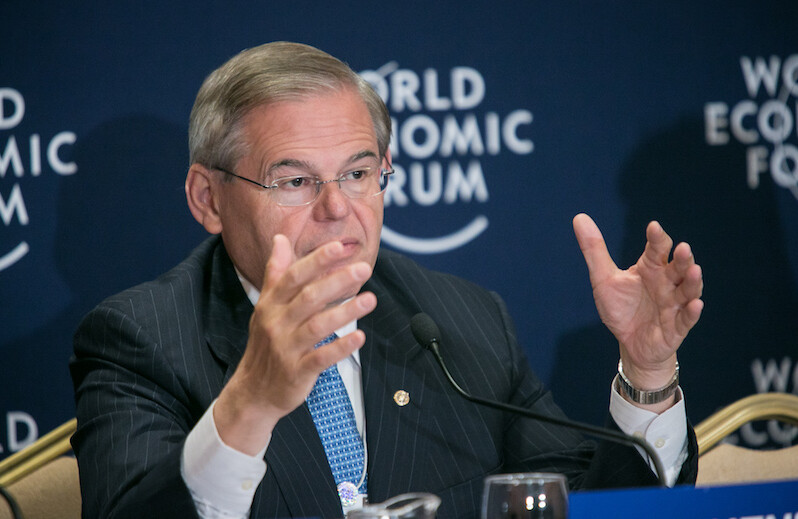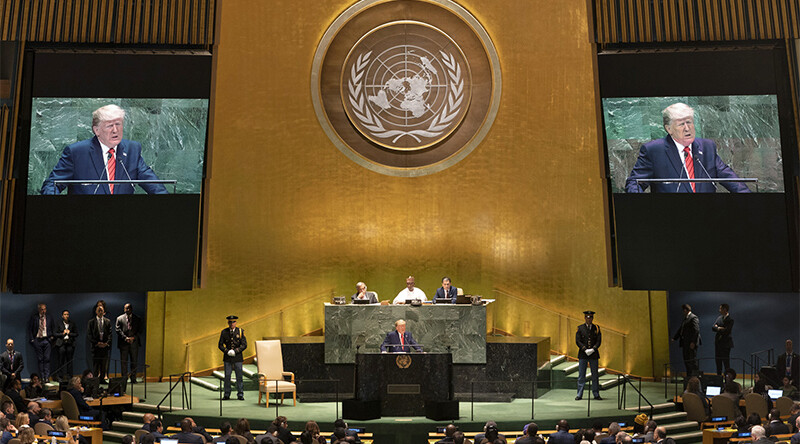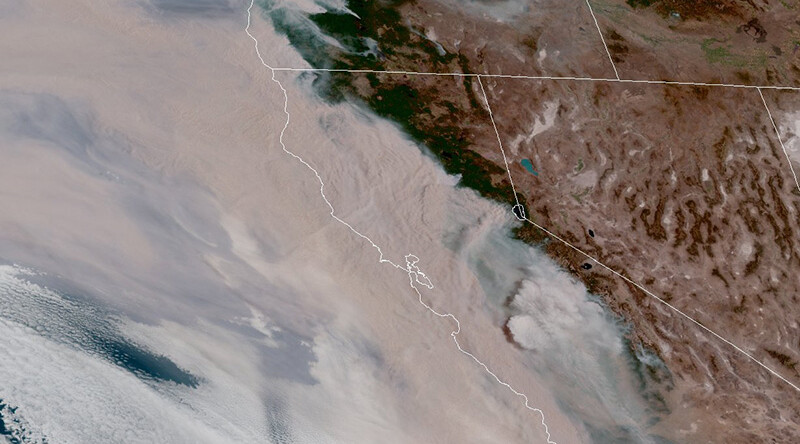This article first appeared on the Ethics & International Affairs blog.
Today, Senator Bob Menendez (D-NJ), the ranking member of the Senate Foreign Relations Committee, unveiled a comprehensive report prepared by the Democratic staff of the committee, The Cost of Trump's Foreign Policy: Damages and Consequences for U.S. and Global Security. As the senator noted in his letter of transmittal, he "directed members of my staff, Lowell Schwartz, Megan Bartley, and Nina Russell, to examine President Trump's conduct of foreign policy and the consequences for U.S. foreign policy and national security" but also to consider a way forward for the United States in the 2020s. It provides a blueprint for how to conceive and advance U.S. leadership within the community of nations.
In releasing this document, Senator Menendez took questions from Politico's Nahal Toosi (recently featured in a episode of The Doorstep). In his comments, what was most interesting was how the senator wove together strands from different foreign policy narratives that the U.S. global engagement project has been examining over the past two years. Certainly, there were elements of the "restorationist" narrative, of returning to a pre-2016 bipartisan consensus, and both Menendez's remarks and the overall tenor of the report reject any hint of transactionalism as a guiding precept in foreign policy, especially with illiberal or authoritarian regimes. At the same time, Menendez also sounded themes that connect to the "reindustrialization/regeneration" narrative—that America is better positioned to lead abroad if it starts by rebuilding capacities at home, and the "democratic community" narrative—of again prioritizing democracy and human rights and being able to work with allies and close partners to share technologies and focus on improvements. Both of these also implicitly speak to the need to connect foreign policy to "doorstep" concerns, especially economic ones, of voters.
Toosi, in her role as moderator, also raised the question of additional perspectives, in querying about the possible increased role and visibility of the progressive wing of the Democratic Party, and whose narrative on foreign policy, as she noted in a recent Politico piece about possible secretaries of state in a future Joe Biden administration, "calls for a reduction in military spending, more emphasis on diplomacy and putting economic issues more at the center of foreign policy." There are also emerging progressive narratives that call for putting climate change more at the center of U.S. policy.
Can all of this be encompassed in a single overarching narrative, and can it provide policy coherence to U.S. efforts in the 2020s? This report is a first response to those questions.




